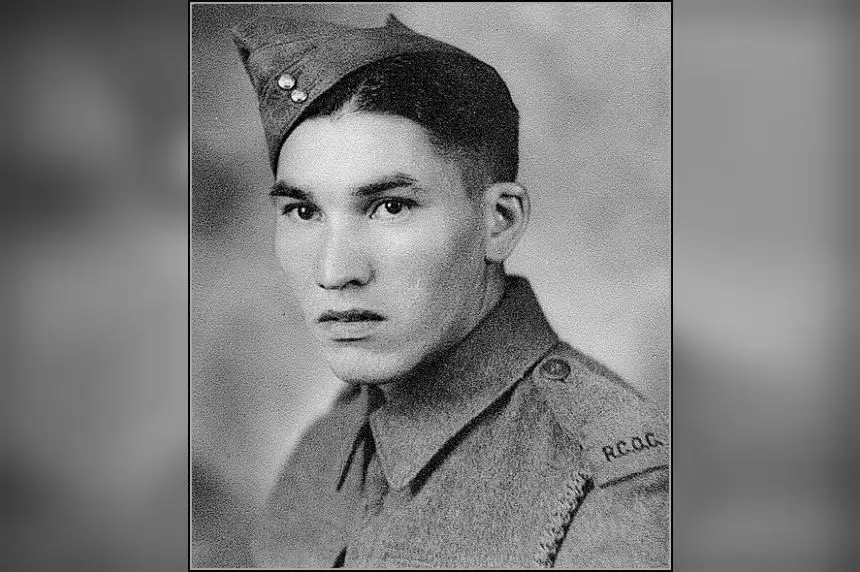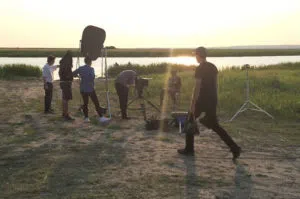Alexandra Lazarowich heard the stories passed through generations of her family – the tales of Indigenous code talkers who helped win the Second World War by communicating in their ancestral languages.
Now, decades after these men took part in a secretive mission, Lazarowich has helped break the silence in a new documentary about her late uncle, Charles ‘Checker’ Tomkins.
The project started with a suggestion from her aunt, which led to a bare-bones Google search heralding one usable link to the Smithsonian archives.
“They had an old recording of him talking about his experience during WWII, and through that it just sort of snowballed,” Lazarowich told The Brent Loucks Show Tuesday morning.
That interview, recorded shortly before the 85-year-old’s death in 2003, opens the documentary Cree Code Talkers.
After discovering the tape, Lazarowich said a research team was assembled and First Nations veteran Warren Sinclair was brought on as a historical advisor to the film.
“The most amazing thing about this project is we were able to find these historical documents,” Lazarowich explained.
Information found in the material helped bring the past to life in the 13-minute documentary, which took about two years to complete.
The film chronicles Checker, a newlywed Métis soldier from La Ronge, as he sets off to war in 1941.
Upon his arrival in London, England, he and other Indigenous soldiers are summoned by Canadian High Command for a special mission.
The men are then broken up into language groups, with Checker being among those who spoke Cree.
From there, the Indigenous soldiers were given code words in their native language to covertly communicate military operations amongst themselves for the U.S. and British air forces.
Lazarowich said piecing together the story was no easy task – at the heart of code talkers’ stories is a promise of never sharing what took place during the Second World War.
“A lot of people took what they did and their heroics with them when they passed,” she said.
“As a community and as a nation, we need to gather these stories before they disappear.”
Lazarowich said the biggest goal for the project is to pass on the stories. So far, a number of schools have actively reached out to her to arrange screenings for students.
“To make sure other people could hear the story and be inspired to go for their own stories in their own families,” she said.








